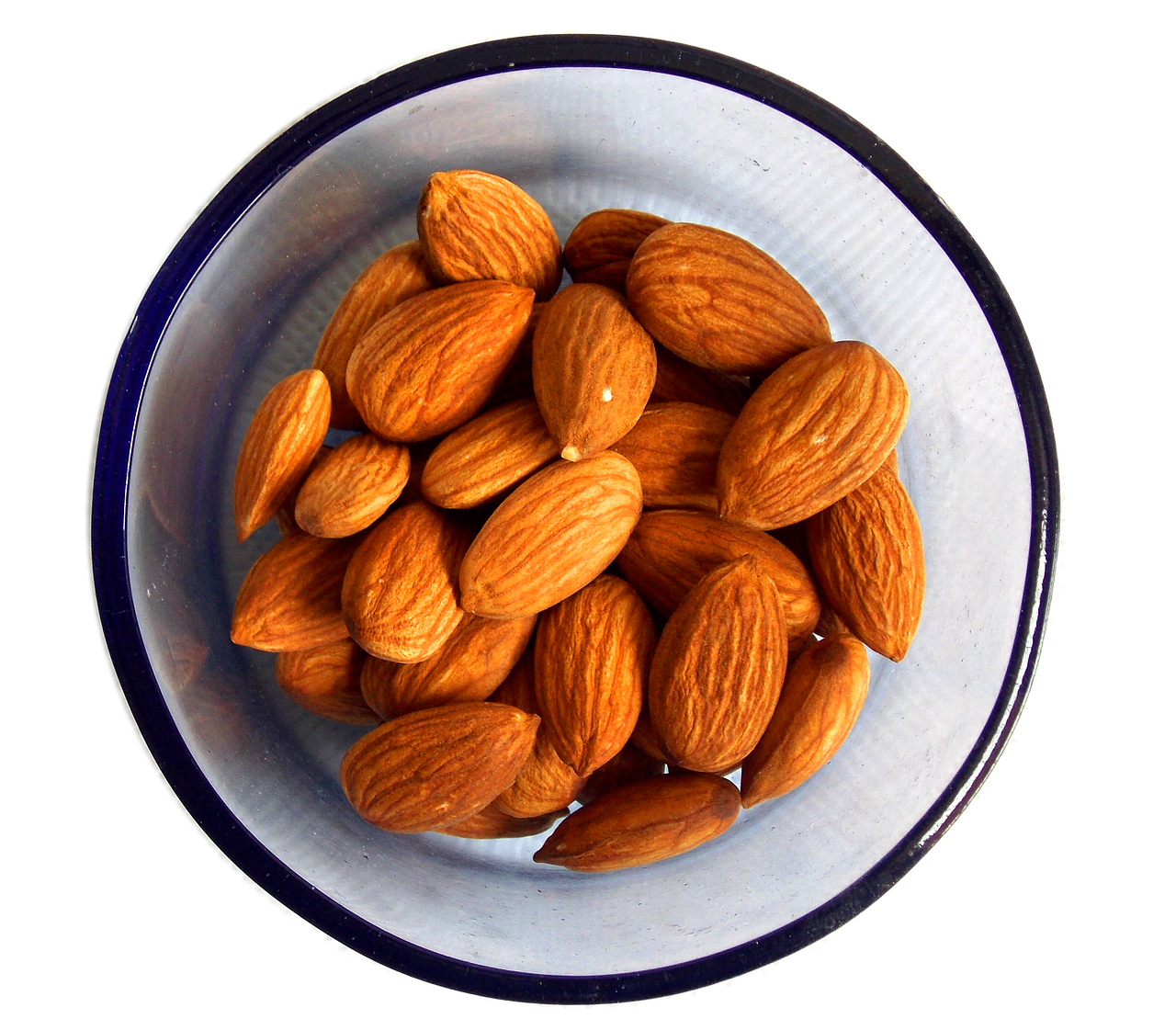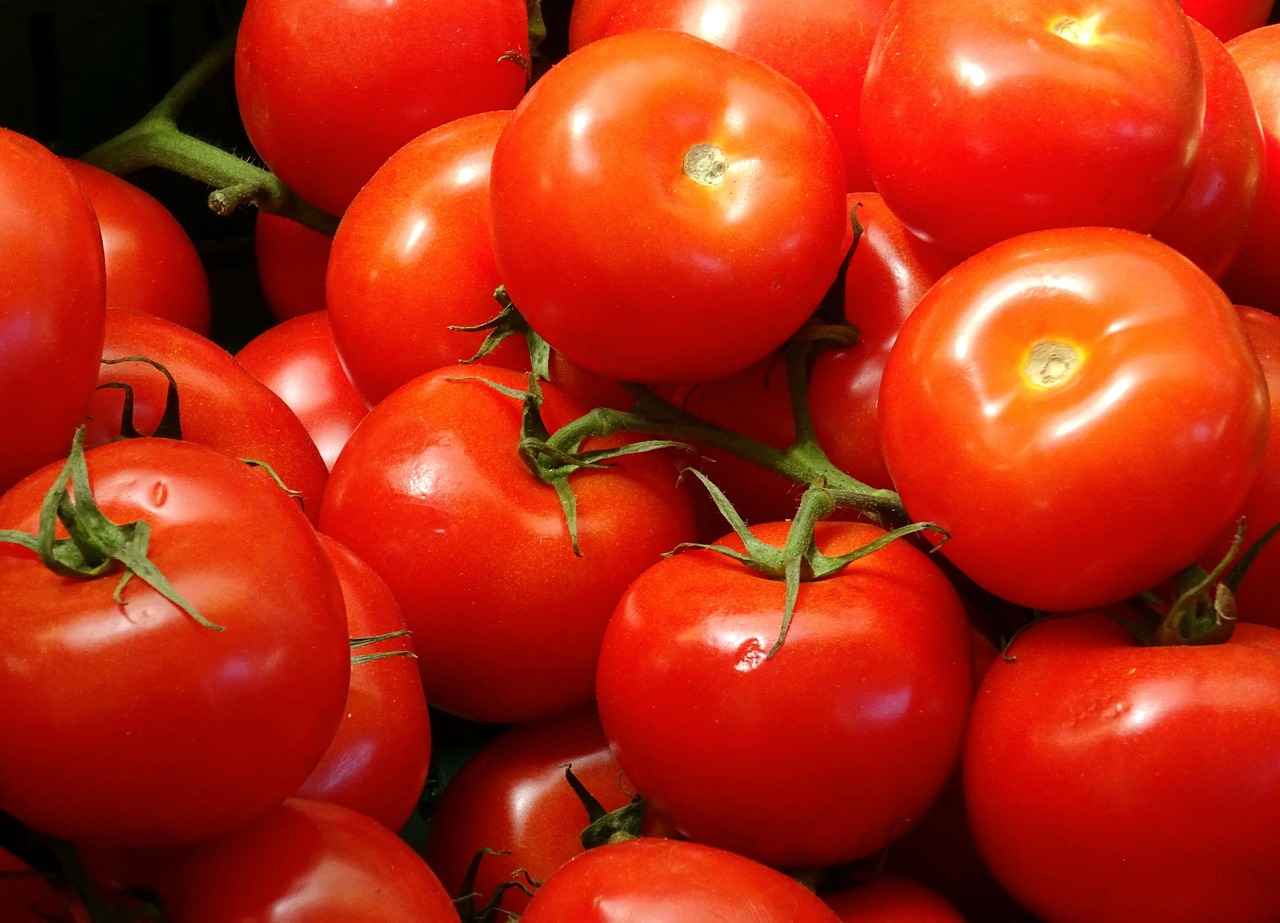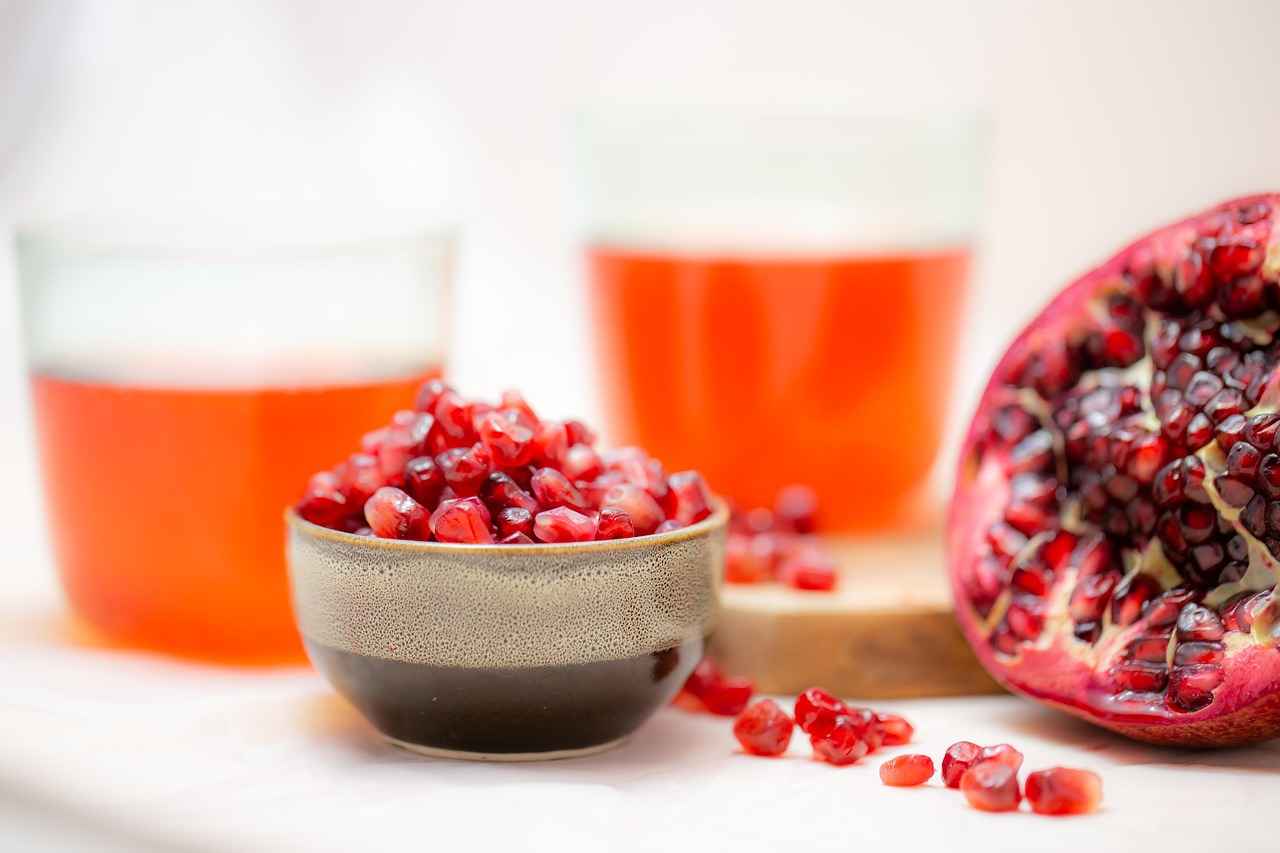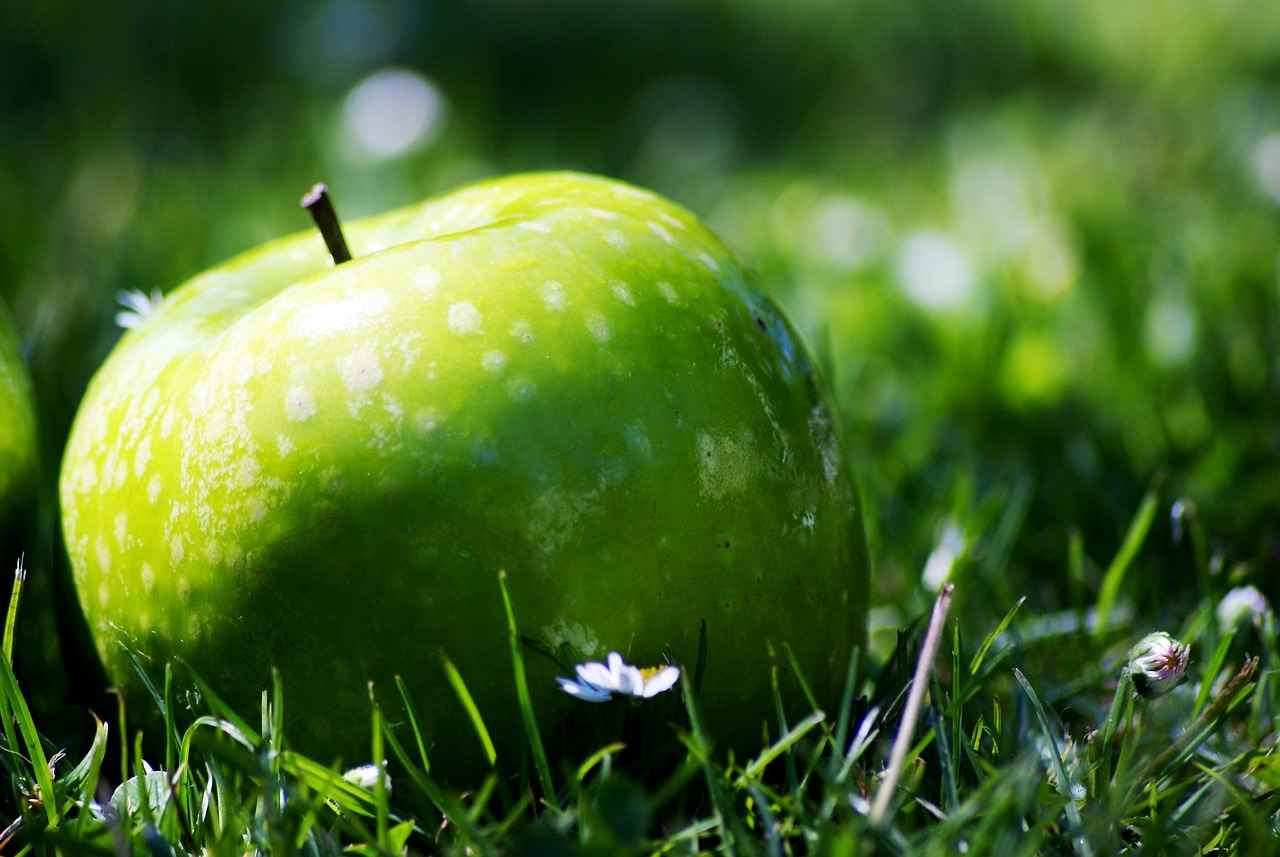This article delves into the cholesterol-lowering advantages of phytosterols, examining their sources, mechanisms of action, and significant role in promoting heart health. This comprehensive overview is designed for individuals seeking to enhance their cardiovascular wellness.
What Are Phytosterols?
Phytosterols are plant-derived compounds that closely resemble cholesterol in structure. They are known for their ability to lower cholesterol levels and support heart health by inhibiting cholesterol absorption in the intestines.
How Do Phytosterols Lower Cholesterol?
Phytosterols work by reducing the absorption of cholesterol in the intestines, which leads to decreased levels of LDL cholesterol, commonly referred to as “bad cholesterol.” This reduction is crucial for maintaining overall heart health.
The Science Behind Phytosterols
Research suggests that phytosterols compete with dietary cholesterol for absorption in the intestines, effectively lowering the amount of cholesterol that enters the bloodstream. This mechanism contributes to a healthier lipid profile.
Clinical Studies on Phytosterols
Numerous clinical studies have confirmed the effectiveness of phytosterols in lowering LDL cholesterol levels. These studies provide insights into optimal dosages and forms of phytosterols that yield the best results.
Recommended Daily Intake
The American Heart Association recommends a daily intake of approximately 2 grams of phytosterols to achieve significant cholesterol-lowering effects. Incorporating foods fortified with phytosterols can help individuals meet this target.
Food Sources of Phytosterols
Phytosterols are naturally present in various plant-based foods. Some excellent sources include:
- Nuts
- Seeds
- Whole grains
- Vegetable oils
These foods make it easy to integrate phytosterols into a balanced diet.
Phytosterols vs. Statins
While both phytosterols and statins aim to lower cholesterol, they operate through different mechanisms. Understanding these differences can help individuals choose the best approach for their health needs.
Benefits of Phytosterols Over Statins
Phytosterols offer a natural alternative to statins, often with fewer side effects. They can be particularly beneficial for individuals who prefer dietary interventions or cannot tolerate statin medications.
Combining Phytosterols with Statins
For those undergoing statin therapy, adding phytosterols can enhance cholesterol-lowering effects, potentially leading to improved heart health outcomes and better lipid profiles.
Potential Side Effects of Phytosterols
Generally considered safe, excessive consumption of phytosterols may result in gastrointestinal issues. It is essential to adhere to recommended guidelines to avoid adverse effects.
Who Should Avoid Phytosterols?
Individuals with specific health conditions, such as sitosterolemia, should avoid phytosterols due to their inability to metabolize these compounds effectively, which can pose health risks.
Consulting Healthcare Providers
Before making significant dietary changes or introducing phytosterol supplements, individuals are advised to consult healthcare providers to ensure safety and appropriateness based on their health status.
Conclusion: Embracing Phytosterols for Heart Health
Incorporating phytosterols into your diet can be a beneficial strategy for lowering cholesterol and enhancing heart health. With the right knowledge and approach, individuals can harness the power of these natural compounds to support their cardiovascular wellness.

What Are Phytosterols?
Phytosterols are naturally occurring compounds found in plants that closely resemble cholesterol in structure. These plant sterols play a vital role in maintaining heart health and managing cholesterol levels. By inhibiting the absorption of cholesterol in the intestines, phytosterols contribute to a healthier lipid profile and support cardiovascular wellness.
Phytosterols, also known as plant sterols, are a group of compounds that can be found in various plant-based foods. They are structurally similar to cholesterol, which allows them to compete with cholesterol for absorption in the digestive system. This competition is crucial because it helps to lower the levels of LDL cholesterol, often referred to as “bad cholesterol,” in the bloodstream.
The primary mechanism through which phytosterols lower cholesterol levels is by reducing the amount of cholesterol absorbed from the diet. When consumed, they bind to the intestinal receptors that would otherwise absorb cholesterol, leading to a decrease in the overall cholesterol levels in the body. This process not only helps in managing cholesterol but also promotes overall heart health.
- Nuts – Almonds and walnuts are excellent sources.
- Seeds – Pumpkin and sesame seeds contain high amounts.
- Vegetable Oils – Corn oil and canola oil are rich in phytosterols.
- Whole Grains – Oats and barley provide significant levels.
The American Heart Association recommends a daily intake of about 2 grams of phytosterols to achieve significant cholesterol-lowering effects. This can be conveniently obtained through fortified foods, such as margarine and yogurt.
Incorporating phytosterols into your diet can lead to numerous health benefits, including:
- Lowering LDL cholesterol levels
- Reducing the risk of heart disease
- Improving overall cardiovascular health
In summary, phytosterols are powerful plant-derived compounds that can significantly contribute to heart health by lowering cholesterol levels. By understanding their sources and incorporating them into your daily diet, you can take proactive steps towards improving your cardiovascular wellness.

How Do Phytosterols Lower Cholesterol?
Phytosterols, also known as plant sterols, are natural compounds found in various plant-based foods. They possess a structure similar to that of cholesterol, which enables them to play a crucial role in managing cholesterol levels in the body. Their primary mechanism of action involves reducing cholesterol absorption in the intestines, which leads to lower levels of blood cholesterol.
When phytosterols are consumed, they compete with dietary cholesterol for absorption in the intestinal tract. This competition effectively limits the amount of cholesterol that enters the bloodstream, thereby lowering the levels of low-density lipoprotein (LDL) cholesterol, often referred to as “bad cholesterol.” Research has shown that incorporating phytosterols into the diet can lead to a significant reduction in LDL cholesterol levels, contributing to better heart health.
Furthermore, studies indicate that a daily intake of about 2 grams of phytosterols can yield noticeable cholesterol-lowering effects. This can be achieved through foods that are naturally rich in phytosterols, such as nuts, seeds, and whole grains, or through fortified products specifically designed to enhance phytosterol intake.
In addition to their cholesterol-lowering properties, phytosterols may also have other health benefits. They have been linked to improved cardiovascular health, reduced inflammation, and enhanced immune function. However, it is essential to consume them within recommended guidelines, as excessive intake may lead to gastrointestinal discomfort.
In conclusion, phytosterols are a valuable addition to a heart-healthy diet. By effectively reducing cholesterol absorption in the intestines, they play a significant role in lowering LDL cholesterol levels and promoting overall cardiovascular wellness.
bad cholesterol,
The Cholesterol-Lowering Effects of Phytosterols
This article explores the cholesterol-lowering benefits of phytosterols, their sources, mechanisms of action, and their role in heart health, providing a comprehensive overview for those looking to improve their cardiovascular wellness.
What Are Phytosterols?
Phytosterols are plant-derived compounds that resemble cholesterol. They play a crucial role in lowering cholesterol levels and promoting heart health by blocking cholesterol absorption in the intestines.
How Do Phytosterols Lower Cholesterol?
Phytosterols reduce cholesterol absorption in the intestines, leading to lower blood cholesterol levels. This mechanism helps decrease LDL cholesterol, often referred to as bad cholesterol, and contributes to overall heart health.
The Science Behind Phytosterols
Research indicates that phytosterols compete with dietary cholesterol for absorption in the intestines, effectively reducing the amount of cholesterol that enters the bloodstream and promoting a healthier lipid profile.
Clinical Studies on Phytosterols
Numerous clinical studies have demonstrated the efficacy of phytosterols in lowering LDL cholesterol levels. These studies provide valuable insights into the optimal dosages and forms of phytosterols for maximum benefits.
Recommended Daily Intake
The American Heart Association suggests a daily intake of 2 grams of phytosterols for significant cholesterol-lowering effects. Incorporating foods fortified with phytosterols can help achieve this goal.
Food Sources of Phytosterols
Phytosterols are naturally found in various plant-based foods. Nuts, seeds, whole grains, and vegetable oils are excellent sources, making it easy to incorporate them into a balanced diet.
Phytosterols vs. Statins
While both phytosterols and statins aim to lower cholesterol, they work through different mechanisms. Understanding these differences can help individuals choose the best approach for their health needs.
Benefits of Phytosterols Over Statins
Phytosterols offer a natural alternative to statins, with fewer side effects. They can be beneficial for individuals who prefer dietary approaches or cannot tolerate statin medications.
Combining Phytosterols with Statins
For those on statin therapy, adding phytosterols can enhance cholesterol-lowering effects. This combination may lead to improved heart health outcomes and better lipid profiles.
Potential Side Effects of Phytosterols
While generally safe, excessive consumption of phytosterols may lead to gastrointestinal issues. It is essential to consume them within recommended guidelines to avoid any adverse effects.
Who Should Avoid Phytosterols?
Individuals with specific health conditions, such as sitosterolemia, should avoid phytosterols due to their inability to properly metabolize these compounds, leading to potential health risks.
Consulting Healthcare Providers
Before making significant dietary changes or introducing phytosterol supplements, individuals should consult healthcare providers to ensure safety and appropriateness based on their health status.
Conclusion: Embracing Phytosterols for Heart Health
Incorporating phytosterols into your diet can be a beneficial strategy for lowering cholesterol and promoting heart health. With the right knowledge and approach, individuals can harness the power of these natural compounds.
and contributes to overall heart health.
The Cholesterol-Lowering Effects of Phytosterols
This article explores the cholesterol-lowering benefits of phytosterols, their sources, mechanisms of action, and their role in heart health, providing a comprehensive overview for those looking to improve their cardiovascular wellness.
What Are Phytosterols?
Phytosterols are plant-derived compounds that resemble cholesterol. They play a crucial role in lowering cholesterol levels and promoting heart health by blocking cholesterol absorption in the intestines.
How Do Phytosterols Lower Cholesterol?
Phytosterols reduce cholesterol absorption in the intestines, leading to lower blood cholesterol levels. This mechanism helps decrease LDL cholesterol, often referred to as bad cholesterol, and contributes to overall heart health.
The Science Behind Phytosterols
Research indicates that phytosterols compete with dietary cholesterol for absorption in the intestines, effectively reducing the amount of cholesterol that enters the bloodstream and promoting a healthier lipid profile.
Clinical Studies on Phytosterols
Numerous clinical studies have demonstrated the efficacy of phytosterols in lowering LDL cholesterol levels. These studies provide valuable insights into the optimal dosages and forms of phytosterols for maximum benefits.
Recommended Daily Intake
The American Heart Association suggests a daily intake of 2 grams of phytosterols for significant cholesterol-lowering effects. Incorporating foods fortified with phytosterols can help achieve this goal.
Food Sources of Phytosterols
Phytosterols are naturally found in various plant-based foods. Nuts, seeds, whole grains, and vegetable oils are excellent sources, making it easy to incorporate them into a balanced diet.
Phytosterols vs. Statins
While both phytosterols and statins aim to lower cholesterol, they work through different mechanisms. Understanding these differences can help individuals choose the best approach for their health needs.
Benefits of Phytosterols Over Statins
Phytosterols offer a natural alternative to statins, with fewer side effects. They can be beneficial for individuals who prefer dietary approaches or cannot tolerate statin medications.
Combining Phytosterols with Statins
For those on statin therapy, adding phytosterols can enhance cholesterol-lowering effects. This combination may lead to improved heart health outcomes and better lipid profiles.
Potential Side Effects of Phytosterols
While generally safe, excessive consumption of phytosterols may lead to gastrointestinal issues. It is essential to consume them within recommended guidelines to avoid any adverse effects.
Who Should Avoid Phytosterols?
Individuals with specific health conditions, such as sitosterolemia, should avoid phytosterols due to their inability to properly metabolize these compounds, leading to potential health risks.
Consulting Healthcare Providers
Before making significant dietary changes or introducing phytosterol supplements, individuals should consult healthcare providers to ensure safety and appropriateness based on their health status.
Conclusion: Embracing Phytosterols for Heart Health
Incorporating phytosterols into your diet can be a beneficial strategy for lowering cholesterol and promoting heart health. With the right knowledge and approach, individuals can harness the power of these natural compounds.
The Science Behind Phytosterols
Phytosterols, often referred to as plant sterols, are naturally occurring compounds found in various plant-based foods. They share a similar structure to cholesterol, which allows them to compete with dietary cholesterol for absorption in the intestines. This competition is crucial for understanding how phytosterols contribute to a healthier lipid profile.
Research shows that when phytosterols are consumed, they effectively inhibit the absorption of cholesterol in the intestines. This leads to a significant reduction in the amount of cholesterol that enters the bloodstream. As a result, this mechanism helps lower levels of low-density lipoprotein (LDL) cholesterol, commonly known as the bad cholesterol. The reduction of LDL cholesterol is essential for promoting heart health and reducing the risk of cardiovascular diseases.
Numerous clinical studies have validated the efficacy of phytosterols in managing cholesterol levels. A systematic review of these studies indicates that a daily intake of 2 grams of phytosterols can lead to a reduction of up to 10% in LDL cholesterol levels. This finding highlights the importance of incorporating phytosterols into a balanced diet, especially for individuals at risk of heart disease.
Moreover, phytosterols are not only effective in lowering cholesterol but also play a role in overall health. Some studies suggest that they may have anti-inflammatory properties and contribute to improved gut health. This multifaceted approach to health makes phytosterols a valuable addition to dietary strategies aimed at enhancing cardiovascular wellness.
In conclusion, the science behind phytosterols reveals their significant role in cholesterol management and heart health. By understanding their mechanisms and benefits, individuals can make informed dietary choices to support their cardiovascular health.
Clinical Studies on Phytosterols
have shown promising results in the quest to lower LDL cholesterol levels effectively. These plant-derived compounds have been the focus of numerous research efforts aimed at understanding their impact on heart health.
Phytosterols, which are structurally similar to cholesterol, work by competing with cholesterol for absorption in the digestive tract. This competition leads to a significant reduction in the amount of cholesterol that enters the bloodstream, thereby helping to lower LDL cholesterol, often referred to as bad cholesterol.
Various clinical trials have provided valuable insights into the optimal dosages and forms of phytosterols for achieving maximum benefits. For instance, one study revealed that a daily intake of just 2 grams of phytosterols can result in a reduction of LDL cholesterol levels by approximately 10% to 15%. This evidence supports the American Heart Association’s recommendation for individuals seeking to improve their cholesterol profiles.
| Study | Dosage | LDL Reduction |
|---|---|---|
| Study A | 2g/day | 12% |
| Study B | 1.5g/day | 10% |
| Study C | 3g/day | 15% |
Furthermore, the form of phytosterols consumed can influence their effectiveness. Research indicates that phytosterols in fortified foods or supplements may offer enhanced absorption compared to those found in natural food sources alone. This finding emphasizes the importance of choosing the right products to achieve desired health outcomes.
In conclusion, the extensive body of clinical research underscores the efficacy of phytosterols in lowering LDL cholesterol. By understanding the optimal dosages and forms, individuals can make informed choices to enhance their heart health. Incorporating phytosterols into a balanced diet may serve as a valuable strategy for those looking to manage their cholesterol levels effectively.
Recommended Daily Intake
Recommended Daily Intake of Phytosterols for Heart Health
The American Heart Association emphasizes the importance of a balanced diet in managing cholesterol levels. Among the various dietary components, phytosterols have emerged as a significant player in promoting heart health. These plant-derived compounds help lower cholesterol levels by competing with dietary cholesterol for absorption in the intestines.
To achieve optimal cholesterol-lowering effects, the recommended daily intake of phytosterols is around 2 grams. This amount has been shown to effectively lower LDL cholesterol, commonly referred to as “bad cholesterol.” Incorporating foods fortified with phytosterols into your daily meals can help you reach this target.
| Food Source | Phytosterol Content (per serving) |
|---|---|
| Fortified Margarine | 1-2 grams |
| Fortified Orange Juice | 0.5 grams |
| Whole Grain Products | 0.2-0.5 grams |
| Nuts and Seeds | 0.5-1 gram |
Incorporating these foods into your diet can be both easy and enjoyable. For instance, adding a serving of fortified margarine to your toast or enjoying a glass of fortified orange juice can help you meet your daily goals without significant dietary changes.
It’s essential to remember that while phytosterols can significantly aid in cholesterol management, they should be part of a comprehensive approach that includes a balanced diet, regular physical activity, and consultation with healthcare providers. This holistic approach ensures not only effective cholesterol management but also overall heart health.
In conclusion, to harness the benefits of phytosterols effectively, aim for a daily intake of 2 grams. By incorporating fortified foods into your diet, you can take proactive steps toward improving your cardiovascular wellness.
Food Sources of Phytosterols
Phytosterols are naturally occurring compounds found in a variety of plant-based foods. These compounds are essential for those looking to manage their cholesterol levels and improve heart health. Incorporating phytosterols into your diet is not only beneficial but also easy, given their presence in many common food items.
The following are some of the best sources of phytosterols:
- Nuts: Nuts such as almonds, walnuts, and pistachios are rich in phytosterols. A handful of nuts can provide a significant amount of these beneficial compounds.
- Seeds: Flaxseeds and sesame seeds are particularly high in phytosterols and can easily be added to smoothies, salads, or baked goods.
- Whole Grains: Foods such as oats, barley, and whole wheat bread are excellent sources. Including whole grains in your meals can enhance your phytosterol intake.
- Vegetable Oils: Oils derived from plants, particularly corn oil, soybean oil, and canola oil, are among the richest sources of phytosterols. Using these oils in cooking can be an easy way to increase your consumption.
- Legumes: Beans and lentils are not only high in protein but also contain phytosterols, making them a nutritious addition to any diet.
- Fortified Foods: Many products, including margarine and yogurt, are fortified with phytosterols. These can be an effective way to ensure you meet your daily intake goals.
Incorporating these foods into your daily meals can help you achieve the recommended intake of 2 grams of phytosterols per day, as suggested by health organizations. By doing so, you can effectively contribute to lowering your cholesterol levels and enhancing your overall cardiovascular health.
In conclusion, the variety of food sources available makes it easy to include phytosterols in your diet. Whether through snacking on nuts, adding seeds to your meals, or using vegetable oils in cooking, there are numerous ways to enjoy the heart health benefits of these natural compounds.
Phytosterols vs. Statins
Phytosterols vs. Statins: Understanding the Differences
When it comes to managing cholesterol levels, phytosterols and statins are two popular options, each with its unique mechanisms and benefits. While both aim to lower cholesterol, understanding how they differ can empower individuals to make informed choices about their health.
What Are Statins?
Statins are a class of medications that inhibit the enzyme HMG-CoA reductase, which plays a central role in cholesterol production in the liver. By reducing the liver’s cholesterol production, statins effectively lower the levels of low-density lipoprotein (LDL) cholesterol, commonly known as “bad cholesterol.” Statins are often prescribed for individuals with high cholesterol levels or those at risk of cardiovascular diseases.
How Do Phytosterols Work?
In contrast, phytosterols are natural compounds found in plants that resemble cholesterol. They work by competing with dietary cholesterol for absorption in the intestines. This competition reduces the amount of cholesterol that enters the bloodstream, leading to lower LDL cholesterol levels. Phytosterols can be found in foods such as nuts, seeds, and fortified products.
Benefits of Phytosterols
- Natural source with fewer side effects compared to statins.
- May be suitable for individuals who prefer dietary approaches to managing cholesterol.
- Can be easily incorporated into a balanced diet.
Combining Both Approaches
For individuals already taking statins, adding phytosterols can enhance cholesterol-lowering effects. This combination may lead to improved heart health outcomes and better lipid profiles. However, it is essential to consult with healthcare providers before making changes to any treatment plans.
Potential Side Effects
While phytosterols are generally safe, excessive intake may lead to gastrointestinal discomfort. It is crucial to adhere to recommended guidelines to avoid adverse effects.
Conclusion
In summary, both phytosterols and statins play vital roles in managing cholesterol levels, but they do so through different mechanisms. Understanding these differences can help individuals choose the best approach for their unique health needs. Whether opting for a natural dietary approach or medication, consulting with healthcare professionals is key to achieving optimal heart health.
Benefits of Phytosterols Over Statins
In the realm of cholesterol management, phytosterols have emerged as a compelling alternative to traditional statin medications. While statins are widely prescribed to lower LDL cholesterol, they often come with a range of side effects that can deter patients from adhering to their treatment plans. In contrast, phytosterols offer a more natural approach to managing cholesterol levels with significantly fewer adverse effects.
Phytosterols, which are plant-derived compounds, function by competing with cholesterol for absorption in the intestines. This action effectively reduces the amount of dietary cholesterol that enters the bloodstream, leading to a decrease in overall cholesterol levels. For individuals who prefer dietary solutions or those who experience side effects from statins, phytosterols present a viable alternative.
Key Advantages of Phytosterols:
- Natural Origin: Being plant-based, phytosterols align with a more holistic approach to health.
- Fewer Side Effects: Many users report minimal to no side effects, making them a safer option for long-term use.
- Dietary Flexibility: Phytosterols can be easily incorporated into various diets through foods such as nuts, seeds, and fortified products.
- Complementary Use: For those already on statins, adding phytosterols can enhance cholesterol-lowering effects without increasing the risk of side effects.
Research has shown that incorporating about 2 grams of phytosterols daily can lead to significant reductions in LDL cholesterol levels. This amount can typically be achieved through a balanced diet rich in plant-based foods or through fortified products.
In conclusion, phytosterols not only provide an effective means of managing cholesterol levels but also cater to individuals seeking a natural alternative to statins. As always, it is advisable to consult with healthcare professionals before making any significant dietary changes or introducing new supplements into your regimen.

Combining Phytosterols with Statins
For individuals undergoing statin therapy, the integration of phytosterols into their daily regimen can significantly enhance the cholesterol-lowering effects. Statins are commonly prescribed to manage high cholesterol levels, but adding phytosterols may provide additional benefits that contribute to overall heart health.
What Are Phytosterols? Phytosterols are naturally occurring compounds found in plants that structurally resemble cholesterol. They work by competing with cholesterol for absorption in the intestines, effectively reducing the amount of cholesterol that enters the bloodstream.
Benefits of Combining Phytosterols with Statins
- Enhanced LDL Reduction: Studies show that the combination of phytosterols and statins can lead to greater reductions in LDL cholesterol, often referred to as “bad cholesterol.” This synergistic effect can improve lipid profiles more effectively than statins alone.
- Improved Heart Health Outcomes: By lowering cholesterol levels more efficiently, this combination may lead to better cardiovascular health, reducing the risk of heart disease.
- Natural Approach: Phytosterols offer a natural alternative that may appeal to individuals seeking to manage their cholesterol levels without relying solely on pharmaceuticals.
How to Incorporate Phytosterols
Phytosterols can be found in various foods, including nuts, seeds, and vegetable oils. Many products, such as fortified margarines and yogurts, are also available to help individuals meet their daily intake goals. The American Heart Association recommends a daily intake of about 2 grams of phytosterols for optimal cholesterol-lowering effects.
Consulting Healthcare Providers
It is crucial for individuals on statin therapy to consult with their healthcare providers before adding phytosterols to their diet. This ensures the combination is safe and appropriate based on individual health conditions and medication regimens.
Conclusion
In summary, combining phytosterols with statin therapy can be a powerful strategy for enhancing cholesterol management and promoting heart health. By understanding how these compounds work together, individuals can make informed dietary choices that support their cardiovascular wellness.
Potential Side Effects of Phytosterols
Phytosterols are recognized for their ability to support heart health by lowering cholesterol levels. However, it is important to acknowledge that, while generally considered safe, excessive consumption of these compounds may lead to certain gastrointestinal issues. These side effects can include symptoms such as bloating, gas, and diarrhea.
To avoid these adverse effects, it is essential to adhere to the recommended guidelines for phytosterol intake. The American Heart Association suggests a daily intake of around 2 grams to achieve significant cholesterol-lowering benefits without experiencing negative side effects. Consuming phytosterols in moderation is key to maintaining a healthy balance in your diet.
- Gastrointestinal Disturbances: Excessive intake may lead to discomfort, including bloating and gas.
- Diarrhea: Some individuals may experience diarrhea when consuming high amounts of phytosterols.
- Potential Nutrient Absorption Issues: High levels of phytosterols can interfere with the absorption of fat-soluble vitamins, such as vitamins A, D, E, and K.
It is crucial for individuals to monitor their intake and consider the sources of phytosterols in their diet. Foods that are fortified with phytosterols can provide a concentrated dose, so it is advisable to consume these products with caution.
Moreover, certain populations, such as those with sitosterolemia, should completely avoid phytosterols. This genetic condition leads to an inability to metabolize these compounds, which can result in serious health risks.
Before making any significant dietary changes or incorporating phytosterol supplements, it is advisable to consult with a healthcare provider. This ensures that any changes made are appropriate for your individual health status and needs.
In summary, while phytosterols can be beneficial for lowering cholesterol, it is vital to consume them responsibly and within recommended limits to avoid potential side effects.
Who Should Avoid Phytosterols?
Phytosterols are known for their beneficial effects on cholesterol levels and heart health; however, they are not suitable for everyone. Individuals with certain health conditions, particularly sitosterolemia, should exercise caution and avoid phytosterols entirely. This rare genetic disorder impairs the body’s ability to metabolize phytosterols effectively, leading to an accumulation of these compounds in the bloodstream. This accumulation can result in serious health risks, including cardiovascular disease and atherosclerosis.
In addition to sitosterolemia, there are other health conditions where caution is advised:
- Cholesterol Absorption Disorders: Individuals with disorders that affect cholesterol absorption may also experience adverse effects from phytosterols.
- Kidney Disease: Those with compromised kidney function may struggle to process phytosterols, leading to potential complications.
- Liver Disease: Since the liver plays a crucial role in metabolizing fats and sterols, individuals with liver conditions should consult healthcare professionals before consuming phytosterols.
It is essential for individuals with these conditions to consult with a healthcare provider before incorporating phytosterols into their diet. A healthcare professional can provide tailored advice based on individual health status and needs.
Moreover, some individuals may experience gastrointestinal discomfort when consuming phytosterols, especially in large amounts. Symptoms can include bloating, gas, and diarrhea. Therefore, moderation is key, and adherence to recommended intake levels is crucial to avoid adverse effects.
In conclusion, while phytosterols can be a powerful tool for managing cholesterol and promoting heart health, they are not universally safe. Individuals with specific health conditions, particularly those affecting metabolism, should prioritize their health by seeking professional guidance.

Consulting Healthcare Providers
is a crucial step for anyone considering dietary changes or the introduction of supplements, such as phytosterols. These plant-derived compounds, known for their ability to lower cholesterol levels, can significantly impact heart health. However, it is essential to ensure that such changes are safe and appropriate for individual health circumstances.
Before embarking on a new health regimen, individuals should consult healthcare providers for several reasons:
- Personalized Health Assessment: Each person has unique health conditions and dietary needs. A healthcare provider can evaluate these factors and provide tailored advice.
- Medication Interactions: Phytosterols may interact with certain medications, particularly those affecting cholesterol levels. Consulting a professional ensures that no adverse interactions occur.
- Understanding Underlying Conditions: Some individuals may have underlying health issues that could be exacerbated by dietary changes. A healthcare provider can help identify these risks.
- Monitoring and Support: Regular check-ups and monitoring can help track the effectiveness of dietary changes and make necessary adjustments.
Moreover, it is important to recognize that while phytosterols are generally safe for most individuals, they are not suitable for everyone. For instance, those with conditions like sitosterolemia should avoid these compounds altogether. Therefore, obtaining professional guidance is essential.
In conclusion, before making significant dietary changes or introducing supplements like phytosterols, consulting healthcare providers is not just advisable; it is necessary. This ensures that individuals make informed decisions that prioritize their health and well-being.
Conclusion: Embracing Phytosterols for Heart Health
Incorporating phytosterols into your diet is not just a simple dietary choice; it can be a significant strategy for lowering cholesterol and enhancing heart health. These plant-derived compounds, which closely resemble cholesterol, have been shown to effectively block the absorption of cholesterol in the intestines. This article delves into the various aspects of phytosterols, their sources, and how they can be integrated into a heart-healthy lifestyle.
Phytosterols are naturally occurring substances found in plant cell membranes. They are structurally similar to cholesterol, which allows them to compete for absorption in the digestive tract. By doing so, they help reduce the levels of low-density lipoprotein (LDL), often referred to as “bad cholesterol,” in the bloodstream.
The primary mechanism through which phytosterols operate involves their ability to inhibit cholesterol absorption. When consumed, they bind to the intestinal receptors that would typically absorb cholesterol, thus preventing its entry into the bloodstream. This leads to a decrease in overall cholesterol levels, contributing to improved heart health.
- Nuts (e.g., almonds, walnuts)
- Seeds (e.g., sunflower, sesame)
- Whole grains (e.g., oats, barley)
- Vegetable oils (e.g., corn oil, olive oil)
- Fortified foods (e.g., margarine, yogurt)
To reap the benefits of phytosterols, aim for a daily intake of around 2 grams. This can be achieved by including a variety of the aforementioned foods in your meals. For instance, adding a handful of nuts to your breakfast or using vegetable oils in cooking can significantly boost your phytosterol intake.
While both phytosterols and statins are effective in lowering cholesterol, they function differently. Statins are medications that inhibit cholesterol production in the liver, whereas phytosterols focus on reducing cholesterol absorption in the digestive tract. For individuals who prefer a natural approach or cannot tolerate statins, phytosterols provide a viable alternative.
In conclusion, incorporating phytosterols into your diet can be a beneficial strategy for lowering cholesterol and promoting heart health. With the right knowledge and approach, individuals can harness the power of these natural compounds. By making informed dietary choices, you can take proactive steps towards enhancing your cardiovascular wellness.
















